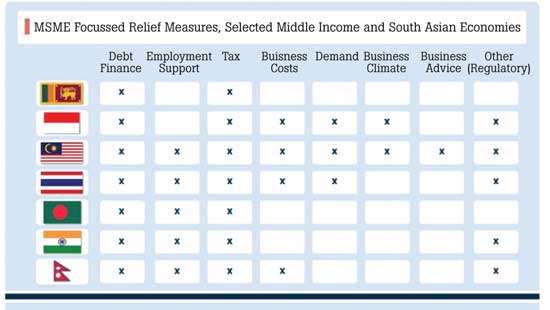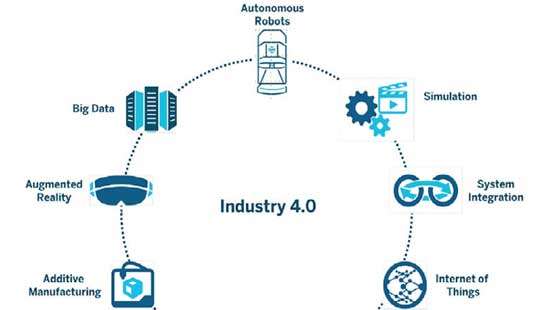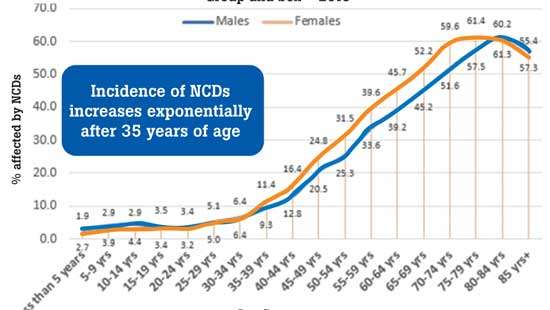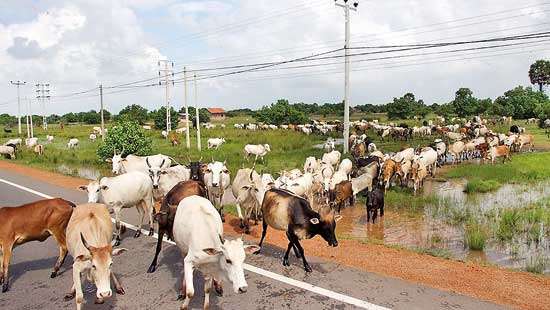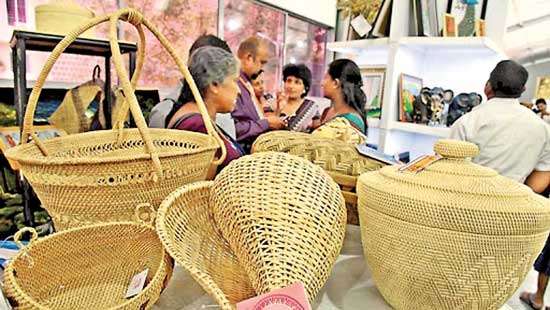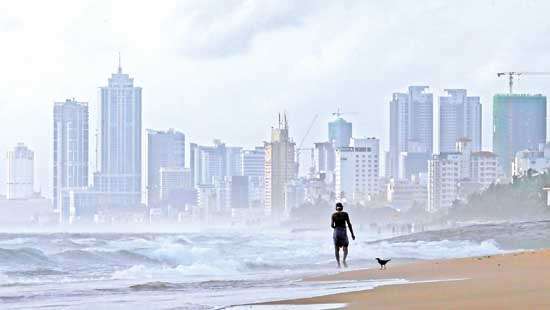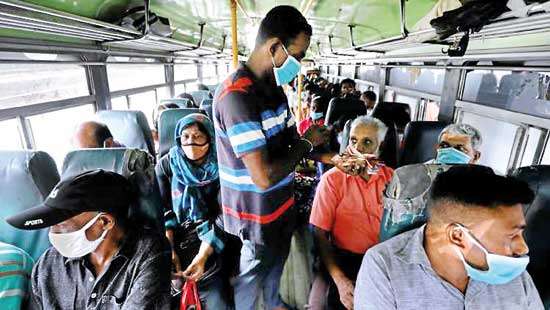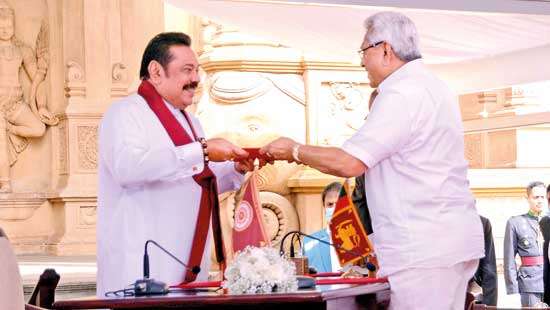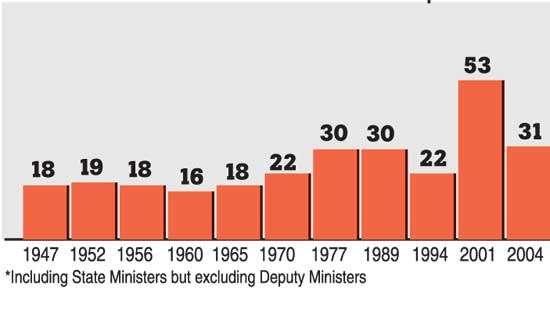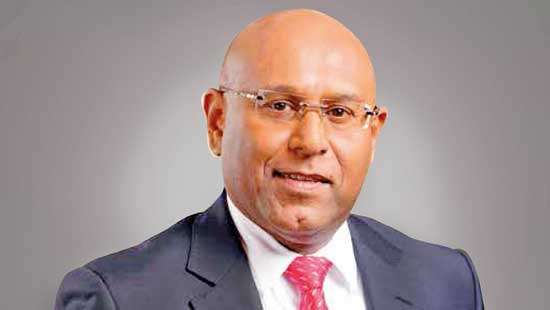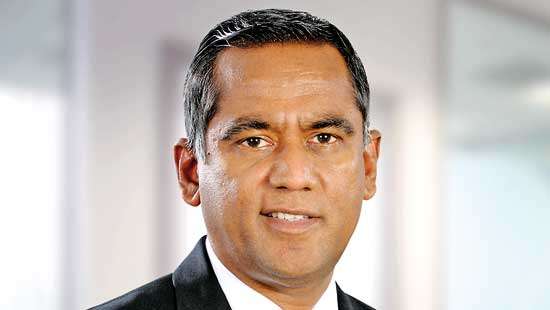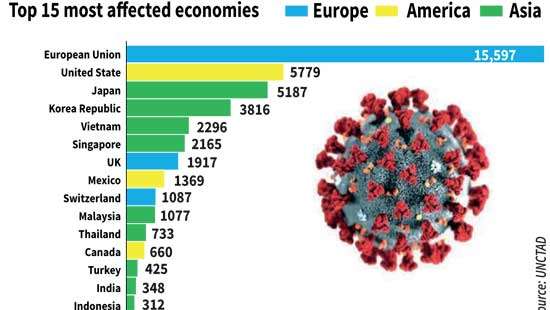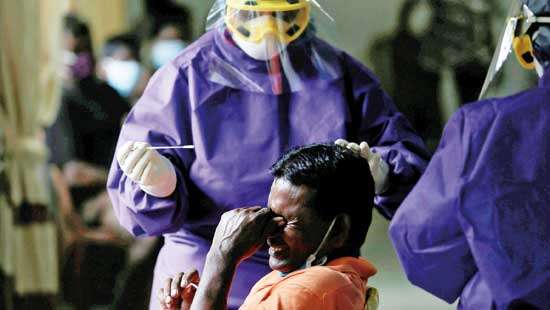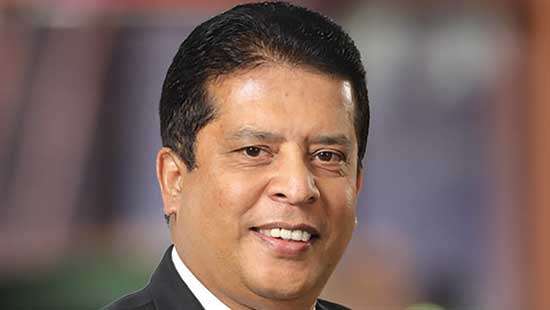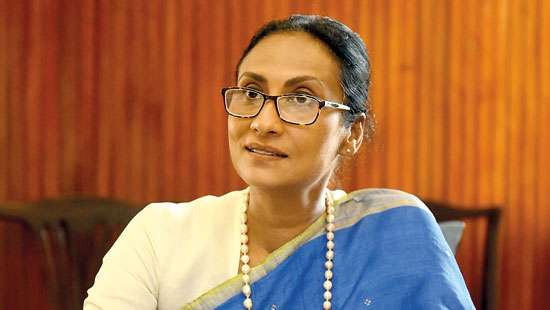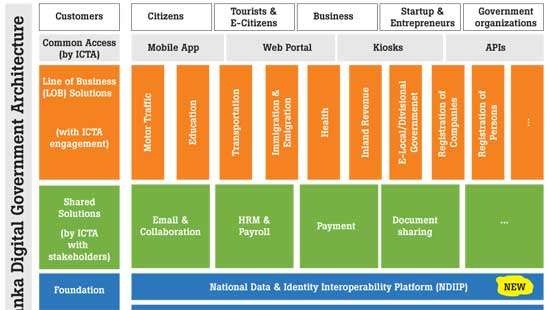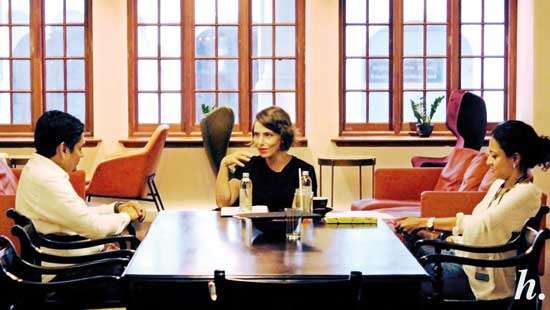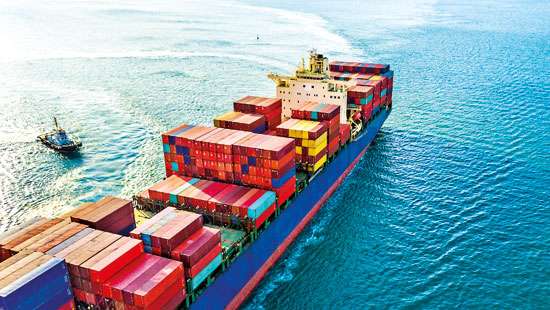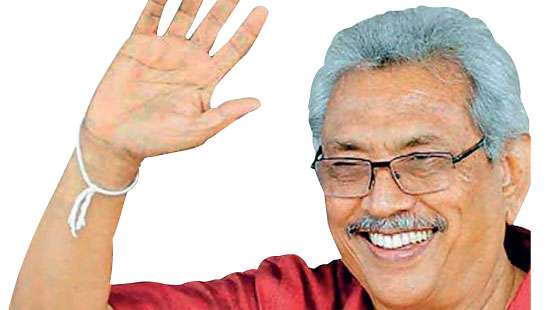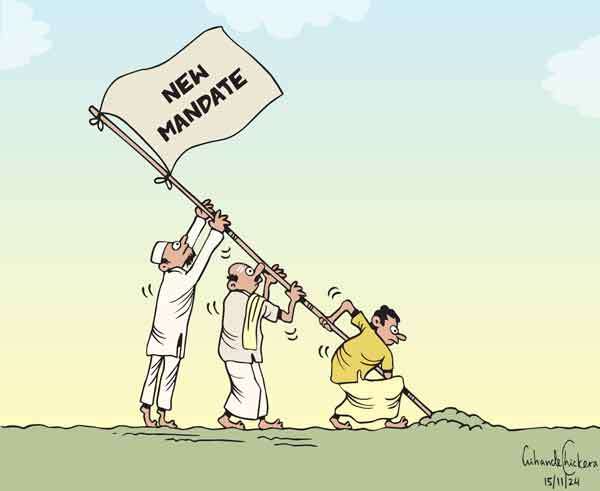Features
Protecting Sri Lankan MSMEs during pandemic: Need for innovative solutions
15 Sep 2020
 0
0
The micro, small, and medium enterprise (MSME) sector in Sri Lanka accounts for 90 percent of all businesses in the country, provides 45 percent of employment, and contributes 52 percent to the nation’s GDP.
Controlling NCDs in Sri Lanka in age of a pandemic
14 Sep 2020
 0
0
According to the World Health Organisation (WHO), non-communicable diseases (NCDs) accounted for 83 percent of all deaths in Sri Lanka in 2016. Even more concerningly, the WHO states that those with pre-existing NCDs, such as cardiovascular diseases, chronic respiratory diseases, diabetes or cancers, are at a higher risk of becoming severely ill with COVID-19.
Banning cattle slaughter: Need to look at all facets of matter
14 Sep 2020
 0
0
The media reported some days ago of a proposal by the prime minister, to bring legislation to stop cattle slaughter and apparently majority of the government MPs are supportive of his proposal. Many Buddhist monks have also risen vehemently supporting the proposal. Have the proponents and the supporters looked wisely into all facts of the matter before rushing into this decision?
Gunaruwan’s questionable MCC report hampers Sri Lanka’s economic and investment prospects
14 Sep 2020
 1
1
The future of MCC remains bleak. Last year, the government appointed an experts panel to review the content of the agreement and the panel report was presented to the members of the Cabinet for their recommendations before the last parliamentary election. The government now has a two-thirds majority in Parliament and is in a position to make a final decision on the signing of the agreement.
Challenges in catalysing SMEs: Bridging missing link?
10 Sep 2020
 0
0
Developing small and medium enterprises (SMEs) has always been a priority for the government and there is a renewed push to catalyse SMEs to aid post-COVID-19 recovery. From directed credit to technical assistance programmes, successive governments and development agencies have tried many methods to develop SMEs.
COVID-19 and Sri Lanka’s labour market gaps: Permanent protection for temporary employees
10 Sep 2020
 0
0
The COVID-19 pandemic emerged as a public health crisis and morphed into a global economic crisis, with severe impacts on commercial activity, employment and trade. The International Labour Organisation (ILO) describes COVID-19 as the “worst global crisis since the Second World War”.
Cooperative movement can be used to give MSMEs new lease of life
27 Aug 2020
 0
0
COVID-19 has made an adverse impact to our economy, where many businesses fall into the micro small and medium enterprises (MSME) category and some in the small and medium enterprise (SME) category. A majority of Sri Lanka’s businesses fall into both the MSME and SME category.
Key economic sectors’ resurgence to bring fresh challenges to banks
27 Aug 2020
 0
0
This is part of an interview series titled ‘Mirror Business S&P SL2 - Insights’ conducted in collaboration with the Colombo Stock Exchange (CSE). The interview features Hatton National Bank PLC Managing Director/CEO Jonathan Alles. Following are excerpts from the interview.
Key reforms in consolidating NBFI sector come under spotlight
24 Aug 2020
 0
0
The non-banking financial institutions (NBFI) sector has evolved over the past years to be a stronger force in the finance industry in Sri Lanka. Unfortunately, the public only remembers NBFIs in light of unethical practices of non-regulated finance companies.
Emerging Asia: securing solid fundamentals for post-COVID future
21 Aug 2020
 0
0
Asia’s emerging economies are at different stages in combatting the Covid-19 pandemic. For some, the light at the end of the tunnel is getting brighter as social distancing measures are being eased and economic activity is starting to ramp up again. Others are still grappling with outbreaks and lockdowns.
Minefield of economic uncertainty with no vaccine in sight
13 Aug 2020
 0
0
With more than 270,000 new cases daily and around 6,000 deaths daily, globally, most world leaders are pursuing a highly uncertain best-case scenario — the discovery of vaccines or a drug — while pushing for the pandemic-controlling options that are available and tested. They are however only part of a whole package of steps to save ourselves from the pandemic and the world economy contracting further.
COVID-19 will drive banking sector digitisation push: Sampath Bank MD
29 Jul 2020
 0
0
This is part of the interview series titled ‘Mirror Business S&P SL2 - Insights’ conducted in collaboration with the Colombo Stock Exchange (CSE). The interview features Sampath Bank PLC Managing Director/CEO Nanda Fernando. Following are excerpts from the interview.
Need for a global reset along a more sustainable path
23 Jul 2020
 0
0
There is no doubt that we are faced globally with a terrible pandemic but it seems that we, humans, have yet to gain the level of wisdom necessary to see through to the consequences of our current way of life, organisations and relationships and also the long-term damage it has dealt to prospects for economic growth.
Tea industry review for first quarter 2020
23 Jul 2020
 0
0
The first quarter of the Sri Lankan tea industry saw an upward momentum with an increase in elevational averages to the comparative period in 2019. Tea production saw a sharp decline in the period of review whilst exports witnessed a decrease.
To be or not to be: Emotional labour of fighting a virus
22 Jul 2020
 0
0
The current realities of grappling with COVID-19 encapsulate many an emotional challenge to society. The attempt herein is to identify the challenges and propose a philosophy of ‘emotional labour’ management to overcome or minimise the ill-effects of emotional ‘burnout’ identified.
Crisis has pushed banking industry to rapidly embrace digital future, says DFCC CEO
21 Jul 2020
 0
0
This is part of the interview series titled ‘Mirror Business S&P SL2- Insights’ conducted in collaboration with the Colombo Stock Exchange (CSE). The interview features DFCC Bank PLC Director/CEO Lakshman Silva. Following are excerpts from the interview.
Anantaya Chilaw becomes first resort certified by SLSI for COVID-19 Safety
20 Jul 2020
 0
0
Anantaya Resort & Spa Chilaw, owned and managed by Laugfs Leisure Limited, has recently become the first resort in Sri Lanka to receive the Sri Lanka Standard (SLS) 1672:2020 certification from the Sri Lanka Standards Institution (SLSI) for COVID-19 Safety Management Systems.
A digitally transformed Sri Lanka
16 Jul 2020
 0
0
The aim of creating a digital ideology for Sri Lanka has at its roots the empowerment of its people. The purpose of this exercise is to develop an indispensable medium where individuals can live out their relations, according to a social structure which encourages novel ideas, norms and values. A medium that would help us understand how we can localise and culturally fine-tune our systems and government into affecting lives positively.
Trade, deglobalisation and new mercantilism
15 Jul 2020
 0
0
The COVID-19 pandemic is accelerating the changes underway since the global financial crisis (GFC) in 2008. It is ushering in a new era of deglobalisation and protectionism — a new mercantilist world order. Three global shifts will likely shape international trade beyond the immediate crisis and into the ‘post-vaccine’ future.
Reimagining education to deal with future economic shocks
15 Jul 2020
 0
0
President Gotabaya Rajapaksa addressing the International Labour Organisation (ILO) Global Summit on ‘COVID-19 and the World of Work – Building a Better Future of Work’, said the skills sector in Sri Lanka requires a rethinking and re-engineering to accommodate the new normal, post COVID-19, while assuring to empower those who lost employment during this pandemic.

Fonterra to proceed with sale process for Consumer businesses
15 Jul 2020
 0
0

BOI signs US$ 12.16mn deal with Celogen Lanka
15 Jul 2020
 0
0

Nissan to lay off thousands of workers as sales drop
15 Jul 2020
 0
0

EU Ambassador meets new BOI Chief to discuss economic ties
15 Jul 2020
 0
0

SLCERT warns WhatsApp users against sharing OTPs to prevent hacking
15 Jul 2020
 0
0

NPP heading for clear parliamentary majority
15 Jul 2020
 0
0



